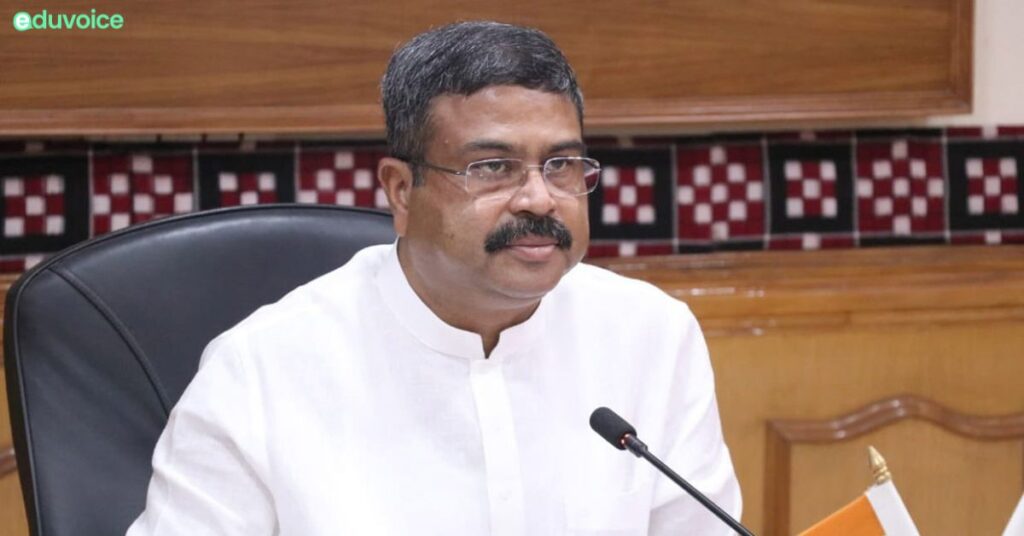The Union ministry of education on Wednesday launched the draft of the first ‘National Credit Framework’ (NCrF) that integrates the credits earned through school education, higher education, and vocational and skill education.
Launching the draft of NCrF for public consultation, Union education minister Dharmendra Pradhan termed it a “game-changer”.
It will open numerous options for further progression of students and inter-mingling of school and higher education with vocational education and experiential learning, thus mainstreaming skilling and vocational education. NCrFwill also enable students who have dropped out of mainstream education to re-enter the education ecosystem,
He Said.
While a credit-based framework is already in place in technical and higher education, it will be the first time that school and vocational education will be included. The NCrF aims to integrate learning on all dimensions i.e. academics, vocational skills, and experiential learning including relevant experience and professional levels acquired.
The draft NCrF has been developed by a high-level committee comprising members from the UGC, AICTE, NCVET, NIOS, CBSE, NCERT, education ministry, DGT, and skill development ministry. | National Credit Framework
Stressing that NCrF will help make India a $5 trillion economy in the next 25 years, Pradhan said, “NCrF will be the most important instrument under NEP 2020 for realising these goals. India is adopting technology at an unprecedented pace. We have to bring reforms to incentivise knowledge, skills & experience. Credits for knowledge acquisition, hands-on training, and positive social outcomes will be a key step for achieving 100% literacy in the next 2-3 years,” he added.
According to the draft, credits will be assigned on the basis of learning hours from class 5 to Ph.D. level. So far, it is being considered to set the total hours of learning per credit at 30.
“NCrF recognises no hard separation between different areas of learning, i.e. arts and sciences, vocational and academic streams, curricular and extra-curricular for the purpose of assignment of credits and credit levels,” the draft stated. | National Credit
Under NCrF, every learning can be ‘creditised’ subject to its assessment. The credits can be earned through classroom teaching-learning, laboratory work, innovation labs, sports and games, yoga, physical activities, performing arts, music, handicraft work, social work, NCC, bagless days, examinations, class tests, training and skilling, field visits in skill education as well as on the job training and internship/ apprenticeship/ Experiential learning including relevant experience.
“Such an approach would also close the gap in the achievement of learning outcomes by shifting the classroom education to competency and learning outcome-based education and learning,” the draft added.
The NCrF will be operationalized through the Academic Bank of Credits (ABC). The University Grants Commission, India’s higher education regulator, last year launched an ACB for higher education. The ABC works as a digital repository of credits earned by students. So far, it is limited to higher education.
“ABC could digitally store the academic and other credits earned from recognized institutions so that credits could be redeemed and the relevant award granted taking into account the credits earned at various NCrF levels. The credits may also be linked to Digi locker for easy verification and portability.
The NCrF will be launched as a part of the implementation of the National Education Policy (NEP) 2020, which advocates that there should be “no hard separations” between vocational and academic streams. The policy also states that at least 50% of learners through the school and higher education system shall have exposure to vocational education till 2025.
Besides, credits will be assigned to students for online programmes to expand open and distance learning options. The regulator has already allowed students to earn 40% of the“This would help in overcoming the constraints of physical infrastructure & scalability while enhancing access, equity, and affordability and ensuring quality and accountability,” the draft added.
For More Such Articles, News Update, Events, and Many More Click Here






